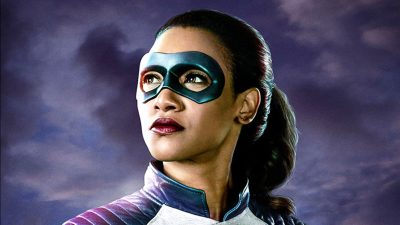Arts & Culture
‘And Just Like That’ Isn’t Perfect, But It Gets Grief Right
In the ‘Sex and the City’ reboot, Carrie Bradshaw’s arc is one of the most truthful depictions of mourning I’ve ever seen on TV.
All That Glitters: On The Clique Novels and My First Lessons in White Privilege
While kids my age were falling in love with the fantastical, I did not. I wanted to read about rich white girls behaving badly.
Celebrating My Malaysian Heritage Through the Beauty of Rojak
Like rojak, our fluid and hybrid identities, I believe, make us more accepting as a community. Mixture is celebrated instead of shunned.
Hayao Miyazaki’s Characters Help Me Grieve My Chronic Illness
“Howl’s Moving Castle” and “The Legend of Korra” are about protagonists living with magic and fighting for the fate of the world. To me, they’re also metaphors for dynamic disability.
Zendaya is Not Your Mama’s Mary Jane
The Black leading ladies of superhero media haven’t always gotten the best deals. But like much of the comic book–inspired world, one change could shape the mythos for decades to come.
Starting Testosterone During Ramadan Led Me to the Sacred in My Trans Self
Before testosterone, few people ever saw me cry. Now tears come in hot floods, as though some tender, unlanguaged creature has surfaced inside me.
Dev Patel in ‘The Green Knight’ Helped Me Manage My OCD
Many times I could have said the same as Gawain, terrified in the face what was to come, “I’m not ready. I’m not ready yet.”
When the News Is Too Much, I Read It Backward
The tidy linearity we’re used to leaves little room for revolution.
Not All Heroes Wear Capes: Unraveling the Myth of the Black Supermom
Nora and Iris West-Allen’s fraught relationship proves that even we daughters often expect superheroics from our very human Black mothers.
Lessons On Camp and Queerness from ‘American Horror Story’
Madison Montgomery never stops performing. She is at once person and persona.









